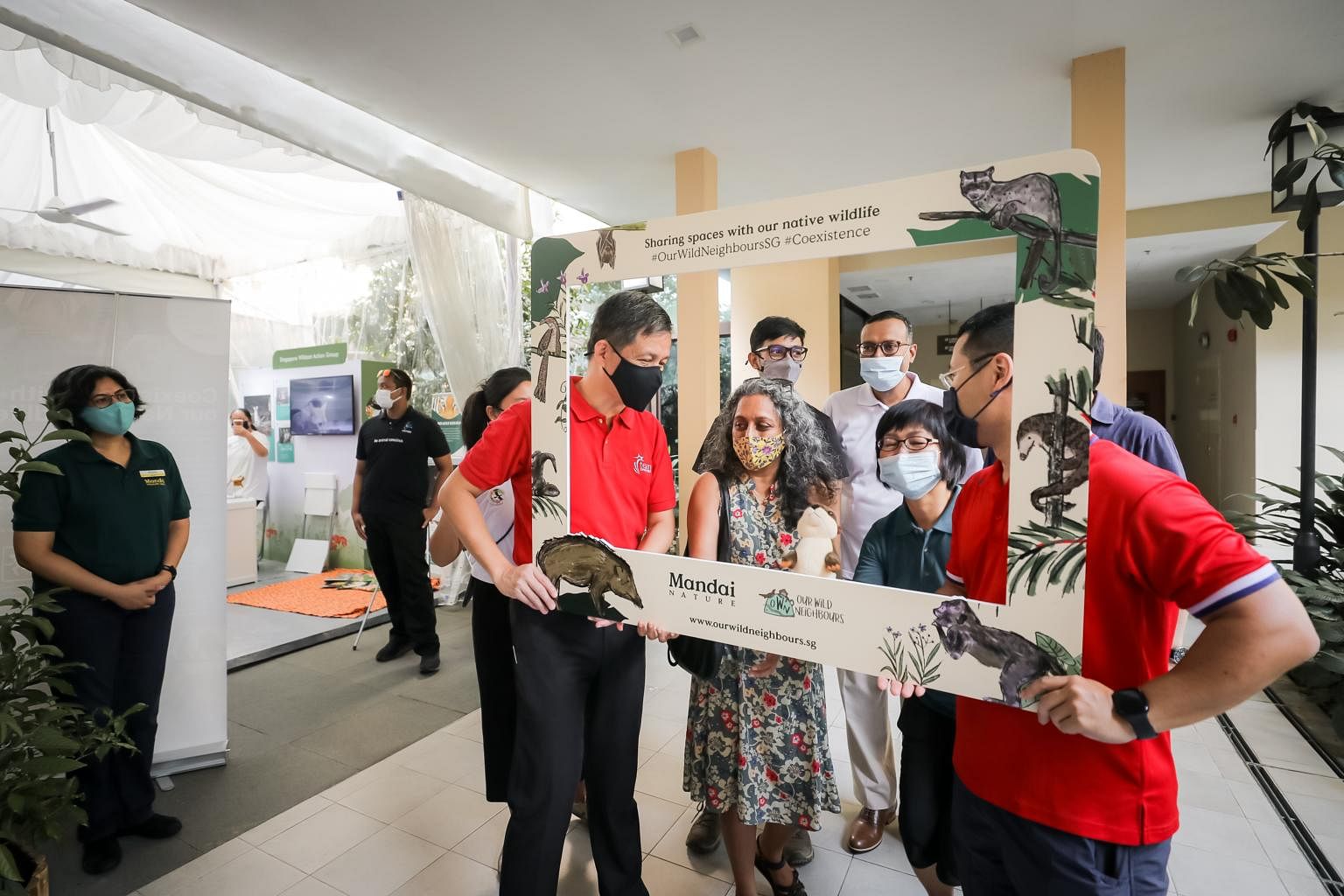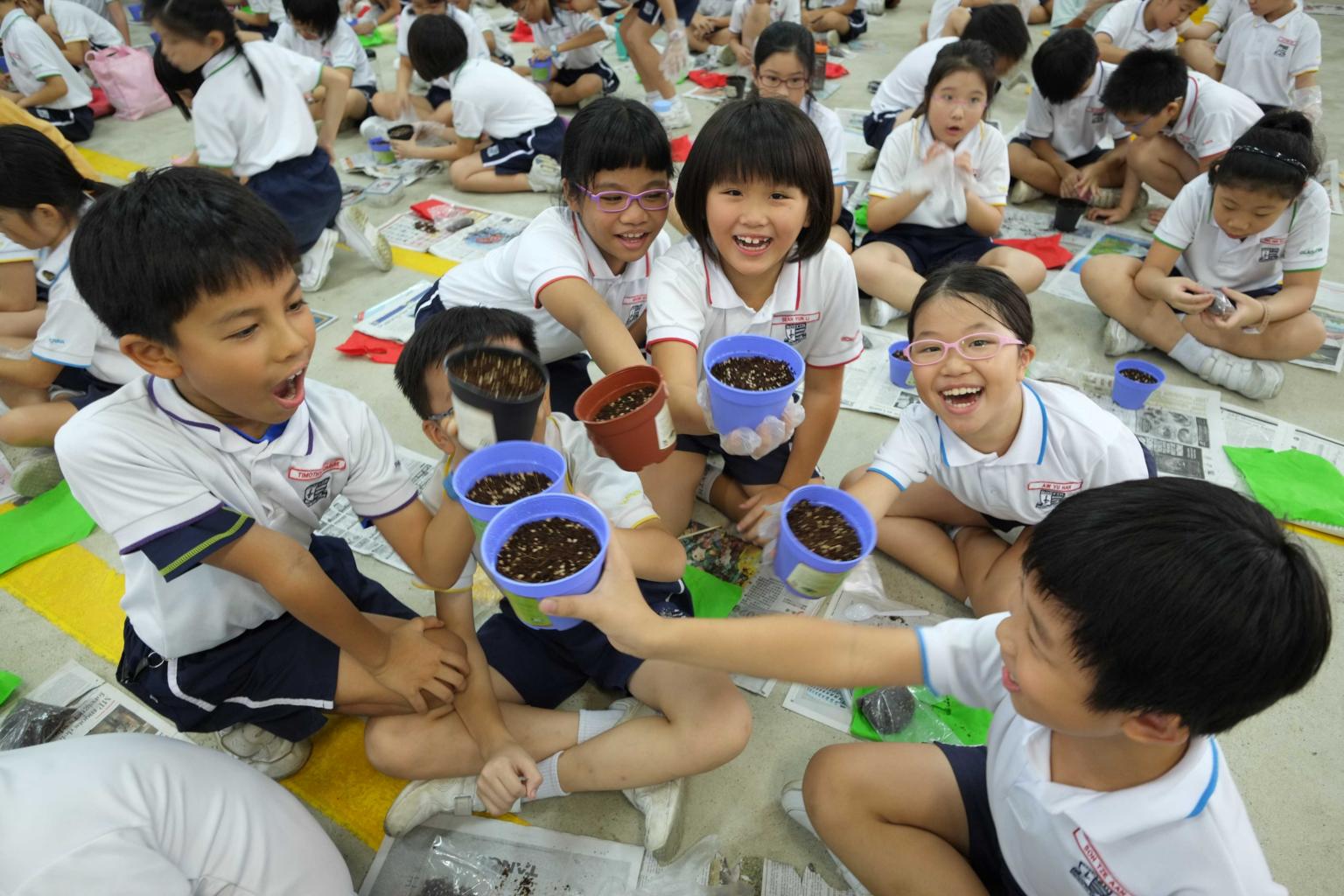Long-term study of forests in Central Catchment Nature Reserve takes root
Sign up now: Get ST's newsletters delivered to your inbox
SINGAPORE - Researchers have now started a long-term forest monitoring survey of the Central Catchment Nature Reserve - the most extensive survey of its kind so far.
It will allow the authorities to improve forest conservation efforts, said the National Parks Board (NParks) on Saturday (May 21).
The study involves the marking out of 62 forest plots within the reserve that had previously been surveyed in 1992.
Within these plots, the vegetation, wildlife and soil will be studied repeatedly over time.
Researchers will conduct surveys on the flora and fauna within these plots, as well as monitor the life cycle of selected trees, seedlings and saplings, among other work.
NParks aims to share interim results of the study within the next three to five years.
In a speech at the Botany Centre in the Botanic Gardens on Saturday, Minister for National Development Desmond Lee said: "The information gathered will allow us to better understand how the forests within the nature reserve have grown and evolved over the past 30 years.
"This will help us to develop better conservation strategies to ensure that their ecosystems remain healthy and resilient."
He added that the Central Catchment Nature Reserve is one of Singapore's most precious biodiversity sites, with highlights such as giant forest trees and freshwater swamps. It is also home to endangered species such as the Sunda pangolin.
The new study comes under the Tropical Forest Ecology Research programme, which was launched in March last year to facilitate the development of science-based interventions for the management and restoration of the country's forests.
Dr Shawn Lum, president of Nature Society (Singapore), said there is currently another long-term study being done in the Bukit Timah Nature Reserve by researchers from Nanyang Technological University.
But this is on a smaller scale, covering two plots of land each spanning the size of four football pitches.
"What makes the Central Catchment study especially important is that not only does it complement what we know from Bukit Timah, but it also adds a much wider sampling of the forest," he added.
"Taking the results from both Bukit Timah and this new study, I think we can say with confidence what is happening to Singapore forests."
Dr Lum also said that the study will provide valuable data about the threshold in terms of size needed for self-sustaining forests.

But he added that the Central Catchment study should not be seen as a standalone academic study, but one of the many attempts to monitor biodiversity in all kinds of environment, including urban ones, in Singapore.
He cited examples of how schools and the public have been contributing to efforts to document biodiversity, adding: "It's all part of this much wider, holistic effort to monitor what is happening around us."
NParks announced the new study in conjunction with the launch of the Festival of Biodiversity on Saturday.
The event is an annual celebration of the community's effort to commemorate the International Day for Biological Diversity.

This year's festival features interactive booths and walks, among other activities.
Education Minister Chan Chun Sing said at the festival's opening that a programme to give primary school pupils seed packs will be enhanced this year.
The Every Child a Seed programme distributes a starter kit comprising a pot, potting mix and a pack of seeds to Primary 3 pupils and special education schools. More than 400,000 pupils have received the kits in the last decade.
Primary 3 pupils in all 185 primary schools this year will get three packs of seeds to commemorate the 10th anniversary of the programme.
They will get the opportunity to grow edible plants such as kailan and chye sim with more seed packets.

Ms Hiew Li Tiang, a science teacher at Westwood Primary School, said the programme has helped pupils to learn about plants and food sustainability.
She added: "With the additional seed packets, I think the pupils will be quite excited. Sometimes, seeds don't germinate, so with the extra packets, I think it will actually help the pupils."
Westwood Primary School received the award for School of the Year in the primary school category under the Community in Nature Schools Award on Saturday.
Far Eastern Kindergarten and Kranji Secondary School were lauded in the kindergarten and secondary school categories.
The biennial award seeks to acknowledge schools, teachers and students who advocate for local biodiversity.


